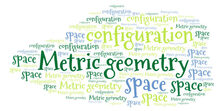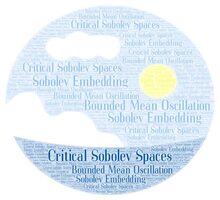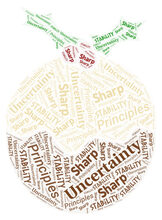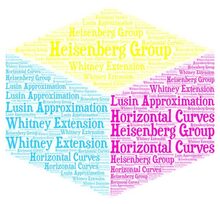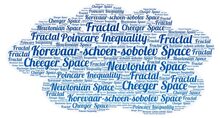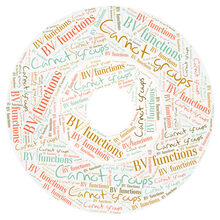Past Events
[Mini-course]: Metric geometry on the configuration space | Professor Kohei Suzuki, Durham University
2023-08-29 to 2023-09-01Title: Metric geometry on the configuration space
Speaker: Professor Kohei Suzuki, Durham University
Abstract: The configuration space Y(X) over a base space X is the space of all Radon point measures on X. The space Y(X) has been studied in many fields such as algebraic geometry (e.g., the hyperplane arrangement with X=Grassmannian), algebraic topology (e.g., the braid group with X=Euclidean plane), representation theory (e.g., the L^2-representation of diffeomorphism groups on manifolds X), statistical physics (e.g., interacting particle diffusions with X=Euclidean space). In this series of lectures, I will focus on the metric geometry of Y(X) induced by the 2-Wasserstein distance. As Y(X) does not support the volume doubling property, the established theory of PI spaces does not apply. The goal of the series is to elaborate on
- Metric geometry on Y(X);
- Curvature analysis on Y(X);
- Applications to infinite particle diffusion processes (including e.g. infinite particle Dyson Brownian motion);
- Open questions.
Lecture 1 | L4E01 August 29, 2023 10:00 - 11:00
Lecture 2 | L4E01 August 30, 2023 10:00 - 11:00
Lecture 3 | L4F01 August 31, 2023 10:00 - 11:00
Lecture 4 | B700 September 1, 2023 10:00 - 11:00
Register here
*After registering, you will receive a confirmation email containing information about joining the meeting.
This lecture be accessible to senior math undergraduate and anyone above the level.
[Mini-course]: Lectures on Capacities | Professor Daniel Spector, National Taiwan Normal University
2023-06-20 to 2023-06-22Title: Lectures on Capacities
Speaker: Professor Daniel Spector, National Taiwan Normal University
Zoom registration: https://oist.zoom.us/meeting/register/tJErce-tpj0jGNN5TM3gwMnRnGHaY5lNZ5Qk#/registration
Lecture 1 Tuesday, June 20 10 am
Lecture 2 Wednesday, June 21st 10 am
Lecture 3 Thursday, June 22nd 10 am
Zoom link: TBA
[Seminar] Critical Sobolev Spaces and Subspaces of BMO, Professor Daniel Spector, National Taiwan Normal University
2023-06-19
Abstract: It is well-known that functions in critical Sobolev spaces embed into the space of functions of bounded mean oscillation (BMO) originating in the work of John and Nirenberg. Less well-known is the fact that they actually embed into BMO on subspaces of every smaller dimension. In this talk we introduce a class of spaces which are finer targets of these critical Sobolev embeddings than BMO that capture this phenomena, which we term beta-dimensional BMO. Interestingly, these spaces also gives an answer to the question of which BMO functions admit restrictions in BMO of subspaces. The key tool is a capacitary analogue of the John-Nirenberg inequality for the Hausdorff content, obtained recently in a joint work with You-Wei Chen.
[Hybrid] OIST Workshop "Potential theory and random walks in metric spaces"
2023-05-30 to 2023-06-02OIST Workshop | Main organizer: Xiaodan Zhou (Analysis on Metric Spaces) | OIST members are welcome to attend all scientific sessions.
OIST campus will be closed on Thursday and Friday due to the typhoon. All talks will be online on Thursday and Friday. You can obtain a zoom link from here.
[Seminar] Sharp Uncertainty Principles and their stability, Professor Nguyen Lam, Memorial University of Newfoundland
2022-12-02Abstract: The Heisenberg uncertainty principle, which is a fundamental result in quantum mechanics, and related inequalities such as the hydrogen and Hardy uncertainty principles, belong to the family of geometric inequalities known as the Caffarelli-Kohn-Nirenberg inequalities. In this talk, we discuss some recent results about the optimal uncertainty principles, Caffarelli-Kohn-Nirenberg inequalities, and their quantitative stability. The talk is based on recent joint works with C. Cazacu, J. Flynn and G. Lu.
[Seminar] Poincare inequalities on the Vicsek set, Professor Chen Li, Louisiana State University
2022-11-18
Abstract:
The Vicsek set is a tree-like fractal on which neither analog of curvature nor differential structure exists, whereas the heat kernel satisfies sub-Gaussian estimates. I will talk about Sobolev spaces and scale invariant $L^p$ Poincar\'e inequalities on the Vicsek set. Several approaches will be discussed, including the metric approach of Korevaar-Schoen and the approach by limit approximation of discrete p-energies.
Zoom: https://oist.zoom.us/meeting/register/tJEpdu-uqTwrGdFV5IrA0woMhvhlxVa_5ttw
[Seminar] Whitney Extension and Lusin Approximation for Horizontal Curves in the Heisenberg Group, Professor Andrea Pinamonti, University of Trento
2022-11-04
Abstract: Whitney extension results characterize when one can extend a mapping from a compact subset to a smooth mapping on a larger space. Lusin approximation results give conditions under which one can approximate a rough map by a smoother map after discarding a set of small measure. We first recall relevant results in the Euclidean setting, then describe recent work extending them to horizontal curves in the Heisenberg group. We focus on C^m curves.
Zoom: https://oist.zoom.us/meeting/register/tJMpduGtqzooG9PA85LMRCwswpo5ODm2nU49
[Seminar] Korevaar-Schoen-Sobolev spaces and critical exponents on metric measure spaces, Professor Fabrice Baudoin, University of Connecticut
2022-10-21[Seminar] Cantor Julia sets, Professor Vyron Vellis, University of Tennessee
2022-10-07Title: Cantor Julia sets
Speaker: Vyron Vellis,University of Tennessee
Abstract: The Julia set of a meromorphic function is the set of “chaotic points”, i.e., the set of all points that have no neighborhood under which the iterates of the function form a normal family. In absence of a rich holomorphic function theory in higher dimensions, the right substitute in complex dynamics are uniformly quasiregular (UQR) maps. Which Cantor sets can appear as Julia sets of UQR maps? How (topologically) complex can such sets be? This talk is based on joint works with Alastair Fletcher and Daniel Stoertz.
[Mini-course] BV functions in Carnot groups | Speaker Dr. Sebastiano Nicolussi Golo, University of Jyväskylä
2022-08-22 to 2022-08-24Speaker: Dr. Sebastiano Nicolussi Golo, University of Jyväskylä
Title: BV functions in Carnot groups
Language: English, no interpretation.




